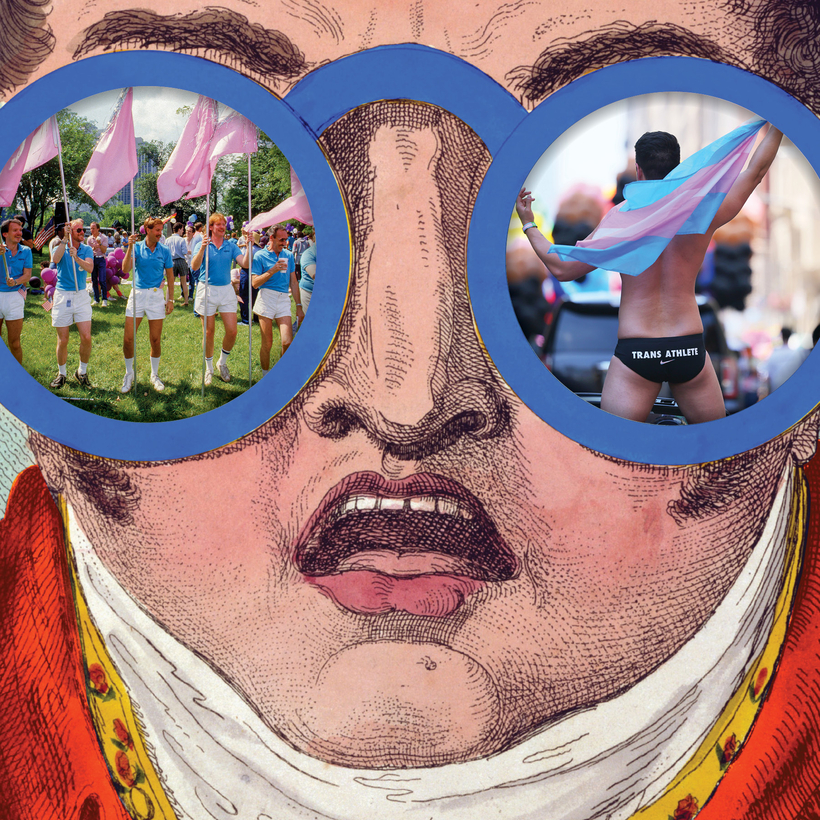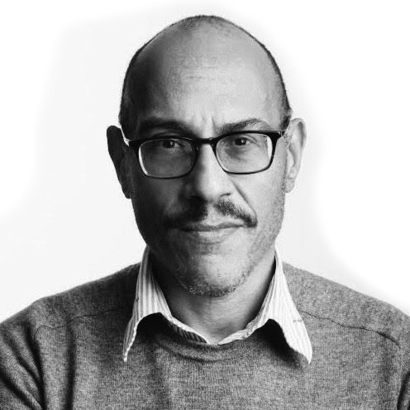Back in 2018, Andrew Sullivan questioned whether the L.G.B.T.-rights movement was heading in the wrong direction. (Yes, back then there were just four letters.) Focused for decades on civil liberties and marriage equality, the movement, he wrote, had become “rhetorically as much about race and gender as it is about sexual orientation.” Most worrisome to Sullivan was an emerging hyper-focus on transgender issues that he worried could lead to a decline in support for L.G.B.T. rights as a whole.
From baseball to beer to college sports, gender identity now dominates nearly every square inch of the “queer” public square. The established L.G.B.T. movement is dead, replaced by a social-and-political agenda almost entirely centered around transgender concerns. Proponents argue that this shift is long overdue—and they may have a point. But the tide Sullivan anticipated is now a full-scale tsunami that could leave most gays and lesbians behind. If it provokes an electoral backlash, they might even find themselves worse off.
Unlike Sullivan, I am neither white nor British nor Catholic nor particularly conservative. I’m mixed-race—Black and Jewish—a divorced gay dad raised by a single mother and heir to little in terms of legacy or wealth. In other words, I’m a poster child for the champions of identity and intersectionality that so regularly claim to speak on my behalf.
And yet, three decades after coming out—on the local news, no less—I struggle to find myself represented anywhere in the current L.G.B.T. movement or community. In a movement that endlessly champions visibility, I have never felt more invisible. And I don’t think I’m the only one.
I’m neither trans nor gender-fluid nor queer nor nonconforming—just gay. And while I respect other people’s pronouns, I don’t declare my own or spend much time thinking about folks who do. As a dad, I’m conflicted about medical intervention for children with gender dysphoria, and I’m troubled by the resistance to science-based debate on the appropriateness of trans athletes in women’s sports. I’d describe my politics as centrist and commonsensical; I’m cautious and somewhat conventional—I dig compromise and try to avoid unnecessary conflict. When it comes to transgender issues, I possess lots of uncertainty—but little outright opposition.
But something changed just over a year ago. One evening, with a friend and his partner in their car, I was stunned by the sheer terror in our voices as we discussed a recent issue involving transgender rights. All three of us held middle-of-the-road opinions, neither particularly pro nor against the specific brouhaha at hand. Yet there we were, three grown men—all of us gay, none of us white, nor particularly affluent—whispering in a locked car, afraid we might be canceled by some omnipotent, social-justice phantom eavesdropping on our sedan.
The moment wasn’t lost on us; we literally lowered our voices further as we lamented the need to lower our voices in the first place. Our chat didn’t last long, but it became clear that I was not the only one out there wondering: Where is the me in L.G.B.T.?
Despite the recent declaration of a national “state of emergency” for L.G.B.T. Americans by the Human Rights Campaign, many of the big fights have already been won. Marriage equality is legal. We can openly serve in the military. Our blood is no longer enough to get us deported if infected with H.I.V. With the advent of PrEP, new H.I.V. infections in the U.S. have declined precipitously. In every state, married L.G.B.T. couples have the same parental-recognition rights as straight married couples. And thanks to the 2020 Supreme Court decision in Bostock v. Clayton County, gay and transgender employees are protected from discrimination under Title VII of the Civil Rights Act of 1964.
These milestones didn’t just happen. They were achieved through decades of political pressure, boycotts, protests—sometimes even open dialogue. Gay men around my age—the pre-PrEP generation—spent much of our adulthoods terrified by sex and traumatized by bigots and gay-bashers. Most of us endured a certain level of familial rejection that took a psychic toll. But things have improved a lot in my lifetime, which is why it worries me when I see a contingent in the L.G.B.T. movement risking those gains to advance their own narrow—and increasingly contentious—agenda.
There we were, three grown men—all of us gay, none of us white, nor particularly affluent—whispering in a locked car, afraid we might be canceled by some omnipotent, social-justice phantom.
A November 2022 Wall Street Journal poll showed white suburban women favoring Republican congressional candidates over Democratic ones by 15 points—a notable rightward shift compared with just three months earlier.
Professional, educated, sensible, these women were reliable allies in the battles for bread-and-butter L.G.B.T. issues such as employment protections and same-sex marriage. And why wouldn’t they be? These were our college B.F.F.’s and early-adulthood roommates before they married and moved to the burbs. They were our spiritual sisters and biggest supporters—maids of honor at our newly legal nuptials and much-needed mom-forces (at least for me) once we became parents.
Mostly thrilled when we had our own kids, they now worry about an L.G.B.T. movement teaching their kids that biological sex is a social construct, among other things. There are a lot of these women out there, and we need their votes.
A clear majority of Americans—64 percent, according to one poll from the Pew Research Center—would favor “laws or policies that would protect transgender people from discrimination in jobs, housing and public spaces.” What the majority of Americans clearly oppose, or at least express uncertainty around, are surgical interventions for transgender minors, unregulated transgender participation in women’s sports, and changes to children’s pronouns without parental consent. We don’t need soccer moms to love us but simply to leave us alone. Treating them like irredeemable bigots will ultimately hurt everyone in the movement—L, G, B, and T.
Yes, the Democrats decisively won the last presidential election, and did better than expected in the midterms. But the party has been losing favor with Black, Hispanic, and non-college-educated voters since 2016. At a time when the majority of Republicans now support core L.G.B.T. issues such as marriage equality, this is not the best moment to alienate those who are finally warming to our cause. A shrinking coalition will only make it harder to protect L.G.B.T. rights in the future. In fact, this may already be happening. According to a Gallup poll from last month, support for same-sex relationships has fallen seven percent since 2022—the sharpest decline this century.
So, what would make more sense? A return to discourse around L.G.B.T. issues that is more welcoming to L’s, G’s, and B’s (not to mention straight people). Same-sex couples in America have the right to marry now, but across the globe—as currently witnessed in Uganda—being gay can still get you executed. And H.I.V., while far less deadly than when I was young, still far and away impacts gay and bisexual men more than it does any other group of Americans.
Room must also be made to acknowledge that certain issues impacting trans folk may not necessarily have anything to do with gays, lesbians, and bisexuals—that, perhaps, our often conjoined identity markers are little more than an outdated alphabet soup of convenience.
It’s one thing to take on sworn opponents such as Florida governor Ron DeSantis. But when folks like me no longer feel welcome at the L.G.B.T. table, the movement has clearly veered off track.
David Christopher Kaufman is a New York City–based editor and writer


